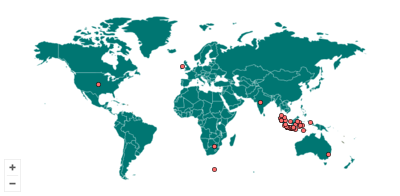RIGHT TO PURCHASE OF THE GOVERNMENT'S SUBSIDISED HOUSES BY UNQUALIFIED BENEFICIARIES BASED ON ISLAMIC ECONOMIC LAW
Keywords:
Islamic Economic Law, Property rights, Beneficiaries, AcehAbstract
Home Ownership Loans (KPR) in the community are not only in demand by those with middle income or target groups as regulated by the Minister of Public Works and Public Housing (PUPR) Number 242/KPTS/M/2020, but also those with high income. Such ownership is a common ownership, known by the developer and the bank appointed as the debtor by the government without any legal sanctions. In practice, existing motives such as profit-seeking, investment, and others are carried out in various ways. The problem is the legal aspect of the validity of mortgage ownership by non-target groups, which is further elaborated into 1) How is the mechanism of ownership of subsidised houses regulated in the Decree of the Minister of Public Works and Public Housing (PUPR) Number 242/KPTS/M/2020, and 2) how is the legal certainty of the ownership contract of subsidised houses according to the Ministerial Decree in the perspective of ghasab law—seeing the importance of knowing how Islamic law reviews the ownership of subsidised houses/mortgages by non-target groups. This research uses descriptive analysis. Data sources are divided into two types: legal sources, such as regulations and fiqh studies. Second, field data will be collected through interviews and observations at the locations of subsidised houses around Banda Aceh.
Downloads
Published
How to Cite
Issue
Section
License
Copyright (c) 2025 Al-Mudharabah: Jurnal Ekonomi dan Keuangan Syariah

This work is licensed under a Creative Commons Attribution-NonCommercial-ShareAlike 4.0 International License.












